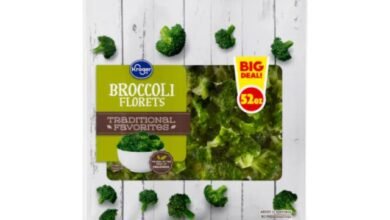An Expert’s Review on GLP-1 Probiotics, Supplements, & Powders

Ozempic has become the “it” topic in the health community, with thousands of people swearing by the weight loss drug. And over the last few months, a bunch of Ozempic alternatives—whether it’s another GLP-1 like Wegovy or a fad diet like Oatzempic—have been popping up.
One of the latest copycat treatments all over TikTok is known as “Nature’s Ozempic,” which includes supplements and other natural substances that claim to be as effective as the popular drug. But despite all the claims, are they healthy—or even safe? We asked cardiologist and MyFitnessPal Scientific Advisor Danielle Belardo, MD, for her take on the trend.
What is “Nature’s Ozempic”?
Berberine is the primary supplement being touted as “Nature’s Ozempic” or a natural alternative for Ozempic. It’s a plant compound commonly used in traditional Chinese medicine. Some studies have suggested it can lower blood sugar and cholesterol levels and improve insulin resistance.
Do natural alternatives to Ozempic work?
Despite what you might see on social media, Dr. Belardo says there is little evidence of berberine’s effectiveness at weight loss. Unlike semaglutide—like Ozempic and similar GLP-1 drugs—which has been well-studied and thoroughly tested in multiple large-scale controlled trials, berberine has not undergone any rigorous testing. And of the small-scale studies that have been done, no meaningful results have been proven.
“There is absolutely no robust data demonstrating that berberine has a clinically significant impact on weight loss or glucose control that can even compare to the FDA-approved GLP-1 medications,” Dr. Belardo explains.

She adds that comparing berberine to Ozempic is not only scientifically inaccurate but potentially dangerous, as people may seek out questionable treatments.
Additionally, berberine (and any supplement, for that matter) isn’t subject to the same strict FDA regulations as prescription medication. “This lack of regulation affects the standardization and quality control of supplements, leading to variability in the purity and concentration of active ingredients in different products,” Dr. Belardo warns.
How to choose (and use) a natural weight loss alternative
Dr. Belardo strongly advises against using supplements as a weight loss strategy. “No supplement, including those marketed for weight loss, has been proven to be as effective or safe as the methods endorsed by health professionals based on rigorous scientific evidence,” she cautions.
MyFitnessPal is one of the best weight loss apps and fitness apps, helping nearly 1 million members reach their nutrition and fitness goals every year.
Instead, she recommends consulting with a trusted healthcare provider, like your primary care physician or a registered dietitian. They can analyze your individual health profile and medical history to come up with an evidence-based approach customized to your specific health needs.
“They can help devise a sustainable weight management plan that combines a balanced diet with regular physical activity,” she explains, noting that this is a safer and likely more effective route.




